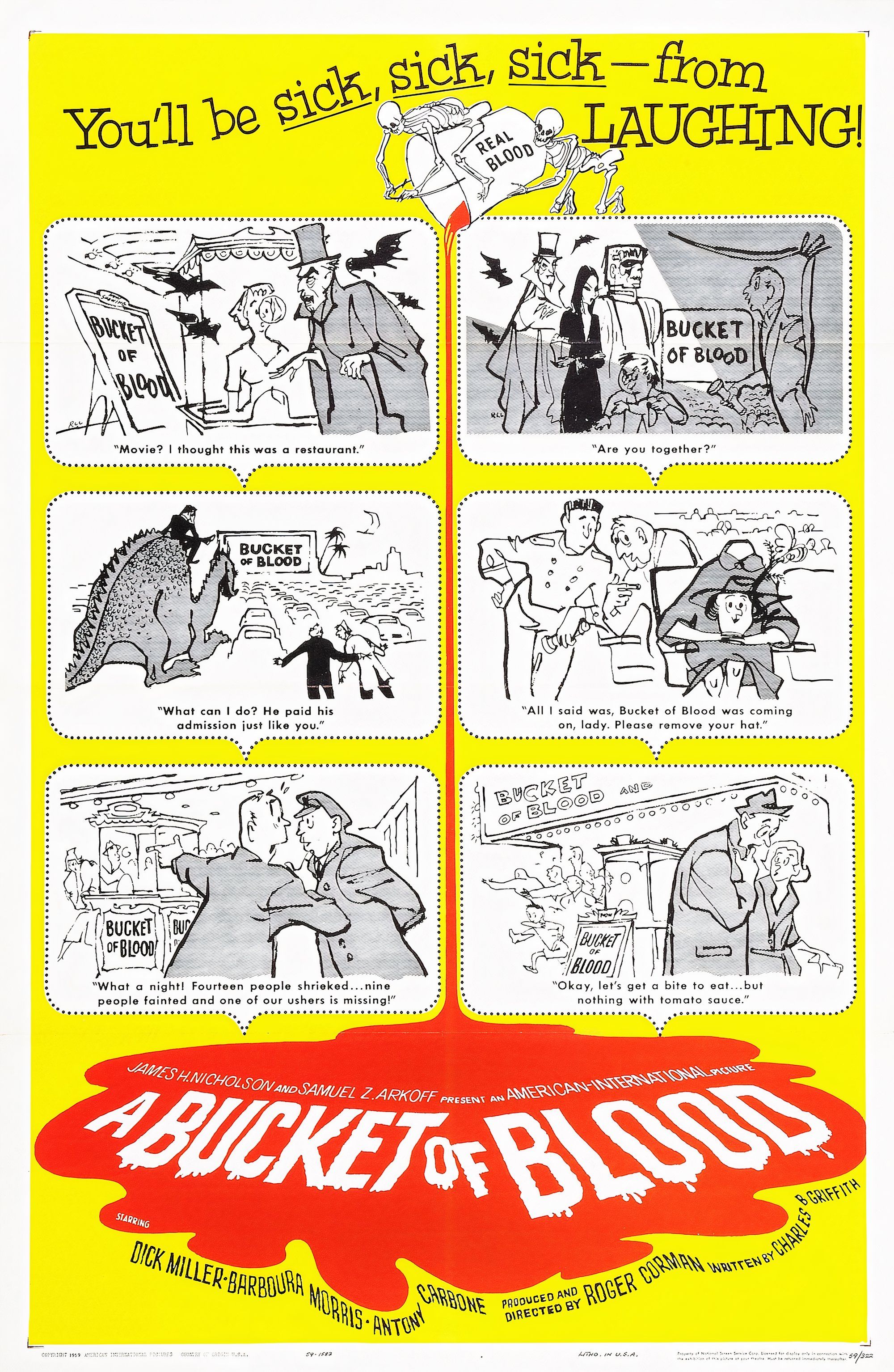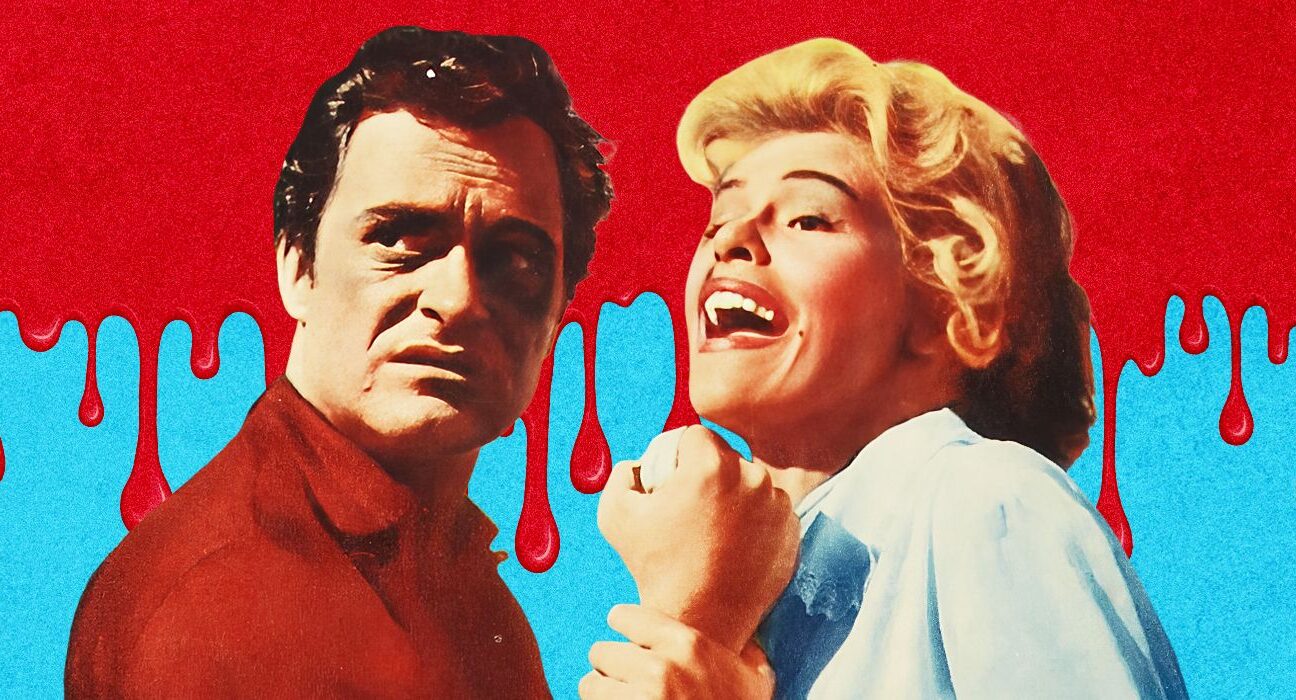The Big Picture
-
A Bucket of Blood
is a tribute to the Beatnik movement and was made on a scant budget with an authentic Bohemian vibe. - Roger Corman pokes fun at the tortured artist trope, exploring the boundaries of creating great art at any cost.
- The film showcases the dark side of the art world, as a dimwitted busboy delves deeper into murder to be admired.
On May 9th, we lost a legend of the screen. Roger Corman made an impact on cult cinema that is impossible to overstate, with a career spanning decades and film credits in the triple-digits, whether as a producer, director, actor, or all of the above. His titles of The King of Cult and Pope of Pop Cinema are well-deserved, his oeuvre being diverse but always fun. A lot of the films that he either directed or produced have elements of comedy in them, by being wacky, high-concept, pulpy genre films. But the most famous film he directed that is actually classified as a horror-comedy is the original The Little Shop Of Horrors, released in 1960. Other than that, he did some fantastic gothic comedies with greats of the horror genre, like Vincent Price, Peter Lorre, and Lon Chaney Jr. However, his best came before all of these films, a little 1959 film called A Bucket Of Blood.
Dick Miller, a cult cinema icon in his own right, plays Walter Paisley, a hapless and dimwitted busboy at a trendy café who longs to be one of the starving artists who frequent the joint. The only problem is that he’s not very good at anything, least of all sculpting. After an incident involving trying to get a cat out of a wall with a knife, Walter gets an idea. If he covers dead things in clay, it’s the same as making art, he assumes. After all, art immortalizes people, so it’ll be like they didn’t even die. This film is a loose parody of another cult classic, The Mystery Of The Wax Museum (1933), which would be remade as House of Wax in both 1950 and 2005. But out of all of them, A Bucket of Blood is not only the most fun but the best examination of the art the bodies are hidden in, and the culture that surrounds it.

A Bucket of Blood
A dimwitted busboy at a beatnik cafe passes off a cat he accidentally killed and covered in plaster as a sculpture, prompting a demand for more art that compels him to commit murders.
- Release Date
- October 21, 1959
- Cast
- Dick Miller , Barboura Morris , Antony Carbone , Julian Burton , Ed Nelson , John Brinkley
- Runtime
- 66
- Main Genre
- Comedy
- Writers
- Charles B. Griffith
- Tagline
- Will YOU join his human museum?
‘A Bucket of Blood’ Was a Tribute to the Beatnik Movement
Corman and the screenwriter Charles B. Griffith, who would team up again with Miller in The Little Shop Of Horrors, came up with the idea for the film while people-watching in Beatnik coffee shops. The two were young creatives in the 1950s and the counter-culture movement of the era was all about Jack Kerouac‘s run-off of Bohemian ideas — an early version of hipsters. The avant-garde type with dark turtlenecks and berets, hitting bongo drums and reciting slam poetry. You may be imagining little more than a parody now, but beatniks were an important prelude to a lot of social movements and cultures. Namely, the hippies who were about to take that baton as Corman was creating the film. A Bucket Of Blood was filmed in a very Bohemian way, with a scant budget of $50,000 and only five days to shoot. It was just like any artist’s independent feature: a great cast, fun ideas, and no production value. The sculptures were just mannequins with weird faces crafted onto them. The sets were reused from another movie, and it all has this very student film essence to it.
This adds to the film’s authenticity, despite its wacky hijinks. The anti-establishment beatniks constantly look down on Walter, the only actual working-class person in the room. They’re enraptured by the sculptures, talking about their intricacies, as the coffee house’s owner looks on in horror and bemusement because he discovers before anyone else what they are. A lot of the jokes in the film can be carried onto modern counter-cultural movements as well. They did the “hipsters eat weird food” joke before it was cool. While it may be lighthearted ribbing at the Beatniks’ expense just as the culture hits its peak, Roger Corman was firmly cementing his position as someone who knew what it meant to be an artist.
Roger Corman Pokes Fun at the Tortured Artist Trope
How far would you go to create your masterpiece? What boundaries are you willing to push to become one of the greatest artists of all time? The intersection of horror and art is always a fun idea to explore. A story about the dark and twisted mind of a creative genius, or the creative genius of someone dark and twisted, is a fascinating one to tell. It can be translated into many different mediums, like dance in Black Swan, music in The Perfection, or the world of art critique and collection in Velvet Buzzsaw. The idea is that art is immortal, so the creation of great art is to be put above fleeting human lives. The tortured artist is a popular if slightly problematic character trope used in fiction; someone whose mind is shattered but in that brokenness great art is made, even at the cost of themselves or others. It misleads in its appeal, with many taking issue with how it tends to romanticize mental illness, but Corman saw the idea and turned it on its head.
Walter Paisley commits the acts of a tortured artist in a straightforward horror movie — Ivan Igor (Lionel Atwill) in Mystery of the Wax Museum. Igor is a tormented soul whose life’s work was destroyed, who now encases people in wax both to compensate for his now damaged hands and out of a desperate need to revive his beloved collection. Walter Paisley’s life, while humdrum, was fine. He was never a talented artist and isn’t as deep as he is highly impressionable to the surrounding artists. He memorizes their poems, takes them literally, and seems to only get into the business of art and murder because he thinks that’ll make them like him.
Roger Corman gave us a lot of fun movies, but he was superb at getting into the minds of even the most outlandish characters. The comedy of A Bucket of Blood comes from this bumbling doofus fluking his way into the art world, with the intellectual hipsters around him finding deep meaning and interpretation in a dead cat encased in clay. The horror of A Bucket Of Blood comes from when that bumbling doofus gets a taste for the adoration he received, falling so deep into his delusion that he crafts a justification for horrific acts.
A Bucket Of Blood is available to stream on Tubi

